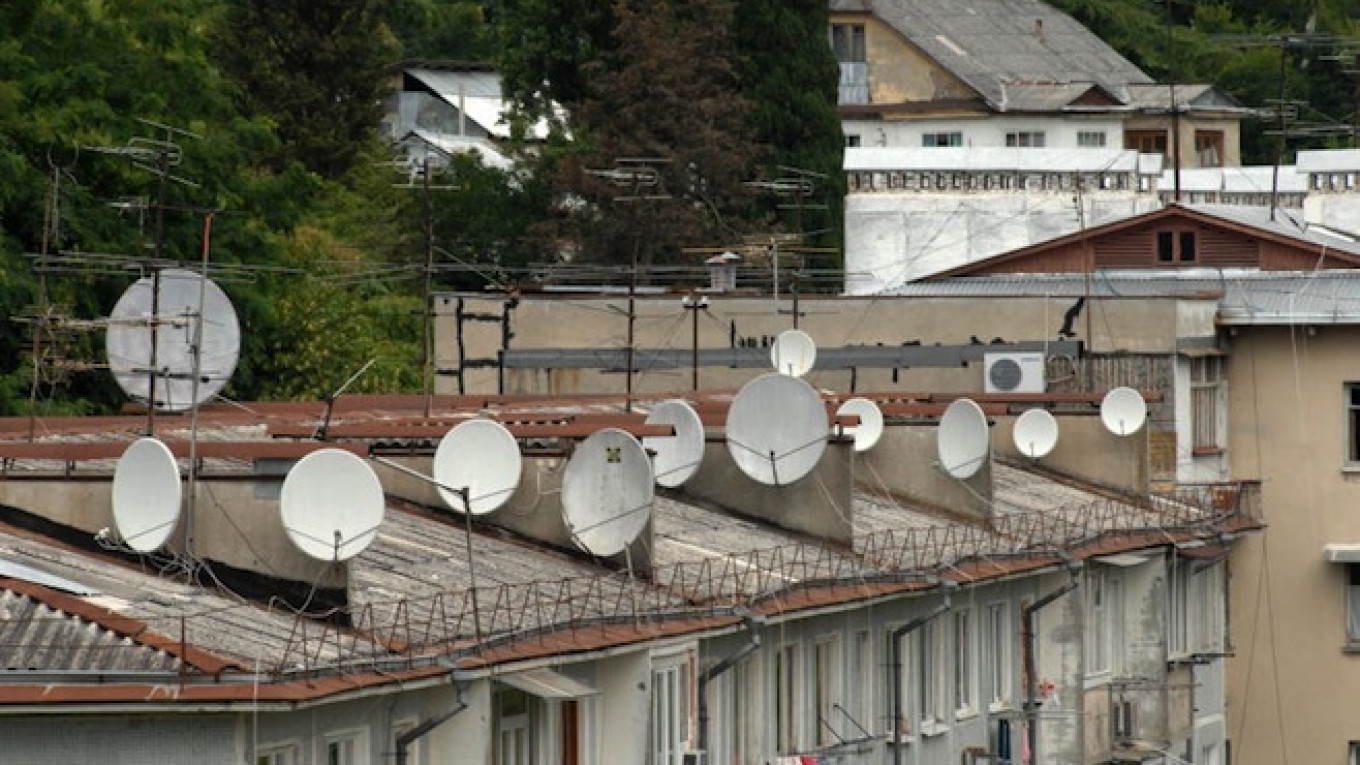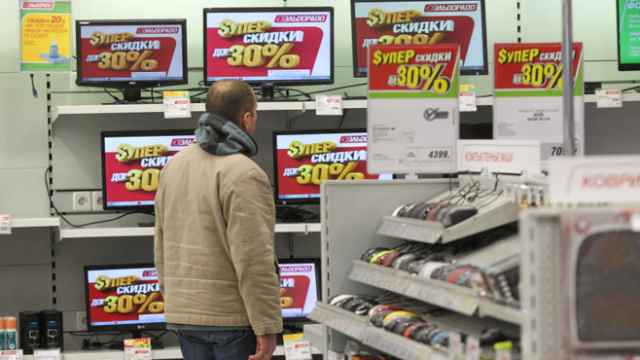President Vladimir Putin has signed amendments effectively overturning a controversial law that had banned advertising on cable and satellite television channels, the Kremlin said Wednesday.
There is a catch: Only channels whose content is at least 75 percent Russian will be able to show advertising. The decision is aimed at "supporting domestic producers of media products," the Kremlin's statement said.
Putin signed the original law less than a year ago. The legislation, which went into effect on Jan. 1, was set to strip advertising revenue from hundreds of independent channels, some of which rely on ads for up to 30 percent of their revenues.
Foreign media companies, including NBCUniversal and CNN, stopped broadcasting their paid programming in Russia in the months before the law came into effect on Jan. 1.
Although the bill was proposed by a marginal Duma deputy member, some in the industry believed its success was related to Mikhail Lesin, then head of state-controlled Gazprom-Media and former long-time chief of the Communications and Press Ministry.
Analysts told The Moscow Times previously that the recent amendments could be linked to Lesin's retirement late last year.
Putin, however, said at a press conference in December that the original ban was the initiative of Russia's state-owned national channels, which were suffering from falling growth in advertising revenues.
The government passed the bill as a way of supporting the channels without dipping into the state budget, newspaper Vedomosti cited Putin as saying.
Cable and satellite channels have never been major players in television advertising, however. Their combined share of the market from January to September last year was only 2.8 percent, according to the Association of Communication Agencies of Russia.
Just two weeks ago, a State Duma deputy from the ruling United Russia party proposed making an exception for channels with exclusively domestic content — a requirement later lowered to 75 percent by the Duma's Committee on Information Policy.
"This is a serious concession to the industry, 25 percent will allow [channels] to provide access to the world's cultural legacy," the committee's chairman Leonid Levin told Vedomosti.
A Message from The Moscow Times:
Dear readers,
We are facing unprecedented challenges. Russia's Prosecutor General's Office has designated The Moscow Times as an "undesirable" organization, criminalizing our work and putting our staff at risk of prosecution. This follows our earlier unjust labeling as a "foreign agent."
These actions are direct attempts to silence independent journalism in Russia. The authorities claim our work "discredits the decisions of the Russian leadership." We see things differently: we strive to provide accurate, unbiased reporting on Russia.
We, the journalists of The Moscow Times, refuse to be silenced. But to continue our work, we need your help.
Your support, no matter how small, makes a world of difference. If you can, please support us monthly starting from just $2. It's quick to set up, and every contribution makes a significant impact.
By supporting The Moscow Times, you're defending open, independent journalism in the face of repression. Thank you for standing with us.
Remind me later.






